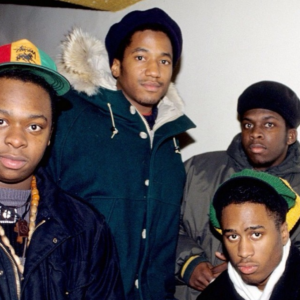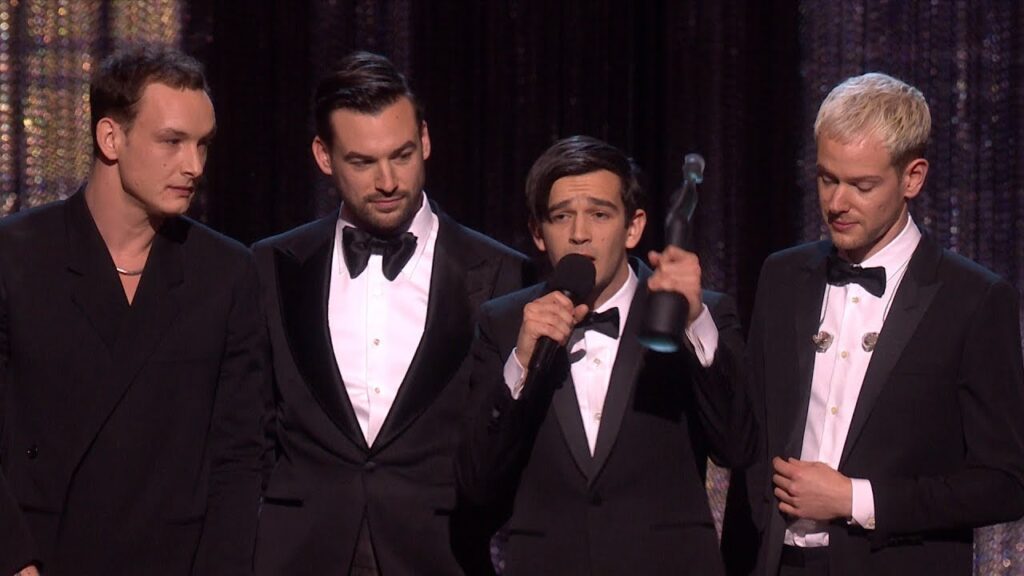Looking Back At One of Hip-Hop’s Finest Gems
Written by Darshak Chudasama on February 21, 2019
For this week’s throwback, we take a look at one of Hip-Hop’s finest gems, A Tribe Called Quest’s The Low End Theory.
29 years ago, back when George H. W. Bush was president, when Nelson Mandela was freed from a 27-year prison sentence, oh and the Detroit Pistons were back-to-back champions, a new addition to the Native Tongues’s discography emerged. In 1990, A Tribe Called Quest, then a team of four, released their debut album People’s Instinctive Travels and the Paths of Rhythm. It was impressive; representing Queens’s youth end in a state of competition coming from every angle—duo Eric B. and Rakim, Public Enemy, and Boogie Down Productions to name a few. The project was noted most for its ability to sandwich serious topics, usually centered around Afrocentrism, with youthful humor and detailed storytelling. While Ali managed the programming, the rest of the production was handled by Q-Tip, filling it with unconventional sampling that only added to the group’s already peculiar style. However, it wasn’t until a year later they were able to hone their efforts, incorporating more (and in some sense less) of the rest of the crew.

Jarobi, Q-Tip, Phife Dawg, and Ali \ @qtiptheabstract \ Instagram
On September 24th of 1991, The Low End Theory was released. The eager young kids from down the block suddenly became the wise elders telling stories on the steps. It was as if the team had gone through years and years of solidification, developing a sound so mature that left their contemporaries in the smoke, blinded in awe for at least a few miles. With Jarobi leaving to pursue a formidable career in the Culinary Arts, someone had to balance out the scale, and it had to be someone willing to play ball with what already seemed like a veteran. Phife Dawg didn’t just hit Q-Tip’s fastest curve balls, he hit Grand Slams. That being said, competition shouldn’t be mistaken for strife. It was an inviolable duet manifesting a subtle perfection that without precision, could easily burst the equilibrium set by the two skilled MC’s. While Q-Tip himself compared the pair to Lennon and McCartney, I myself would say closer to Paige and Bonham, shown in their tightly understanding the roles of each other, therefore proving capable of performing over and under one another, independently or cooperatively.
The epitome of suave—Q-tip as facile as ever—performs undeniably one of the smoothest deliveries ever heard on any record, on the opening track “Excursions.” Similar to the green letters running across the red figure on the album cover, Q-Tip binds his verses over the unforgettable accompanied bass line, a menacing trance till the gunshot-like snares enter, TAP! The sample, like many here, was acquired from old Jazz collectives, this one particularly from Art Blakey and the Jazz Messengers. The following track is considered a breakthrough for the five-foot assassin, as he frequently calls himself. The bass strings plucked through “Buggin Out” seem to weigh a quarter-pound each, vibrating at a rate more than most speakers can take.
“Yo, microphone check one, two, what is this?/The five-foot assassin with the roughneck business”
Phife Dawg’s raps are visceral, exploding with charisma and enough confidence to kill a man—maybe that’s why his height never stopped him from being such a ladies man. Confirmed on “Butter,” he openly admits monogamy wasn’t a concern of his. As he revisits a high school dilemma, Q-Tip equates Phife’s swag “smooth like butter,” but clarifies not the fake stuff—”Not no parkay, not no margarine.” While “The Infamous Date Rape” sadly remains an outlier to the infamous misogyny of 90’s Hip-Hop, the following “Check the Rhime,” cuts the tension with a typical call and response tactic that the duo is so keen at. The track was one of three singles and continues to be a Tribe classic. The Low End Theory wasn’t just a breakthrough album for Phife Dawg. The closer “Scenario” sparked new attraction for the Leaders of the New School, a New York-based rap group with the most notable member Busta Rhymes. All throughout the album, we see the duo take turns violating the microphone in ways that could be illegal. The closer, however, passes the crown to Busta.
Nearly three decades later, The Low End Theory remains just as fun, groundbreaking, and groovy as it was when first released. A quintessential Hip-Hop album, to say the least, beautifully integrating after-hour jazz with surreal rap interplay. Though, to simply call this a “jazz-rap album” would be a poor understatement. It isn’t a surprise The Low End Theory constantly appears on greatest albums lists. The album paved a new direction for the rest of 90’s Hip-Hop, with Dr. Dre himself speaking on the influence of Q-Tip’s lyricism, “He actually made me want to know more about words and use them as tools.” Kanye West paid tribute to the late passing of Phife Dawg in 2016, adding “Tribe made Kanye West. Made the kid with the pink Polo. Made it so I could dress funny.”
As easy as it is to get lost in the low end of the sonics presented here, we’re reminded why A Tribe Called Quest is often referred to as one of the greatest Hip-Hop acts of all time.


